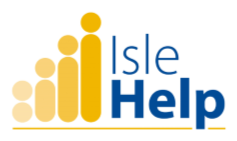We have seen an increase in the number of scams circulating during lockdown, on social media and through mobile networks. We are aiming to raise awareness of the growing number of scams that are targeting more and more people.
What is a Scam?
Scams are fraudulent schemes that are created by people with malicious intent to steal money and/or information from unsuspecting victims. This is usually achieved by pretending to be someone/something they are not and can involve giving a sense of urgency. This aims to make the victim act quickly without thinking too much about the situation in order to have the highest chance of successfully stealing their money/information.
Trading Standards has setup a that includes common scam techniques and how to deal with them, as well as more information about them in general.
Scam Awareness
is a founding member of ( Against Scams Partnership) and works together with leading organisations such as , , and to promote the reporting of scams and to help the victims.
The Office of National Statistics research showed that in 2018/19 a large proportion of cybercrime victims were under the age of 55, degree qualified and managers or professionals. Referred to as the ‘life established’, these victims often do not report the crime as they feel embarrassed. But scam perpetrators are becoming increasingly sophisticated. With the outbreak of the Corona Virus, fraudsters are using our vulnerability to scam us. Common Coronavirus scams include:
- Texts claiming to be from official Government sources issuing a fake payout or fine for leaving home
- Fake emails from research organisations affiliated with the World Health Organisation (WHO). These say they can provide the recipient with a list of Covid 19 infected people in their area – for a ‘donation’
- That you have been in contact with somebody who has tested positive and telling you to click on a link – this is particularly worrying as over 52,000 Islanders are currently trialling the NHS Covid-19 App so may think that this is a genuine message
Businesses are also not immune, and Trading Standards are warning that with more employees working from home, the risk to businesses falling prey to scammers has increased. Business Against Scams was set up by Friends Against Scams, a National Trading Standards initiative, to empower businesses to tackle scams by giving them information and support on how to protect themselves and their employees.
Tips for Keeping Safe from Scams
Sally Ash, IW Trading Standards, offers this advice on how to keep yourself safe from Scams:
On the telephone:
- If you don’t know the number that is calling you – don’t answer it
- Purchase a call blocking telephone – these are reasonably priced and as the majority of scams are computer generated, they can’t navigate the call blocking technology so you won’t even receive the calls. You can programme in the number of friends and family that you DO want to talk to.
- If you are with Sky or Talk Talk for your landline calls, they both have a free call blocking service that you can sign up to and have the same function as a call blocking phone.
Via email:
- The majority of legitimate organisations, including the Government, won’t contact you via email.
- If you receive an email that you are concerned about, check the senders actual email address, if it is a scam it will bear no relevance to the company that allegedly sent it. It may be a nonsensical selection of numbers and/or letters or may just be a personal email.
- NEVER click on links in unsolicited emails, scammers will either use this as a phishing exercise to gain your personal details or worse – gain access to your bank accounts.
Online:
- When purchasing something online, ensure that the site is secure, this is indicated by a green padlock in the web address
- Be wary of pop-up adverts offering “trial” products, usually health treatments or face creams. When you sign up for it you have to put in your bank account details so the “trial” is free, but the company will then continue to debit your account every month
- Any pop ups on social media or WhatsApp, usually purporting to be from supermarkets or national chains offering amazing deals or free vouchers will be further attempts to gain your personal details, DO NOT share them, they are scams.
- If you use social media, please ensure that your privacy settings are as secure as they can be. This is how scammers can find out all about you and they will use this to establish a connection and befriend you – ultimately to con you out of money.
If you think you may have been scammed
For advice on what to do if you think you have been scammed visit the .
- For advice on scams call – Citizens Advice Consumer Helpline:
- To report a scam call – Action Fraud:
The Against Scams Partnership (IWASP) was formed in 2016 under the Age Friendly Island initiative, with Citizens Advice and Trading Standards being two of the original partners. The partnership has since grown and now boasts over 30 partners who are all committed to keeping their customers and the Islands residents free from scams
If you are interested in finding out more about scams and how to protect yourself and your family and friends, visit www.friendsagainstscams.org.uk and take their online training to become a Friends Against Scams Champion in your local community.
Updated 26/08/2021
Adviceline: (free)
Textphone:
*Adviceline is open 9am until 5pm Monday to Friday

